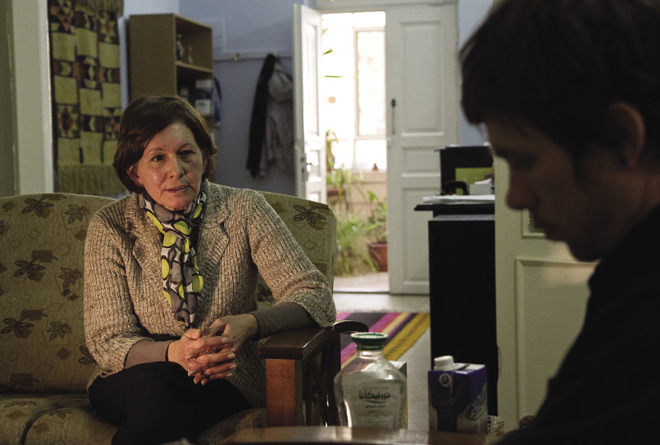
Peacebuilding is an inherently optimistic endeavor. While it can involve different means, there is a constant focus on an end – something different, something better, something yet to come. If you have no hope whatsoever, say many of the alumni interviewed for this issue of Peacebuilder, it would be impossible to do the kind of work they do. And yet, the track record in the Middle East seems to amount to little more than a growing list of dashed hopes and disappointment, of failure, of eyes blinded for eyes, leaving everyone blind. As this issue goes to press in September 2012, the Syrian civil war is estimated to have killed nearly 25,000 people over the previous 18 months. The possibility that Iran will develop a nuclear weapon, and that Israel or the United States will use violence to prevent it from doing so, continues to loom fearfully large in people’s minds. The Israeli-Palestinian peace process has all but been abandoned, leaving intact deep, systemic forms of violence that traumatize both sides.
For some, these realities inspire pessimism and frustration that threaten to snuff out hope.
“You have to be hopeful,” says Fadlallah Hassouna (SPI ’10 & ’11), executive director of the Development for People and Nature Association, which works among youth in southern Lebanon.
But he speaks slowly, shaking his head, then admits he can hardly believe his own words, that he is afraid of what tomorrow might bring. Conflict is never far from the surface in Lebanon, he says. It seems inevitable again, and so he hopes that perhaps his work will at least serve to minimize its impact, to mitigate its effects.
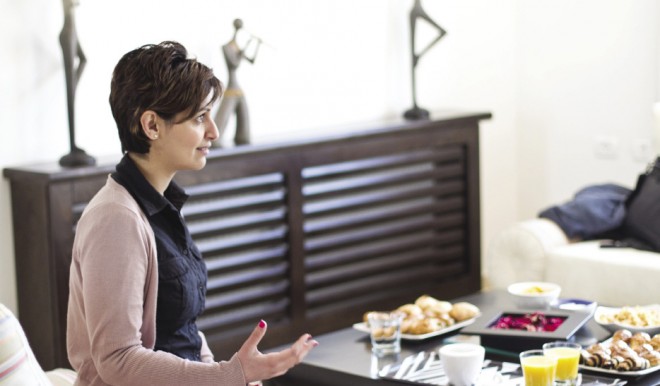
Structural Solutions Absent
In Jordan, Raghda Quandor, MA ’04, lists off the big challenges facing her country: hundreds of thousands of Iraqi refugees arriving over the past two decades, water insecurity, the status of the Palestinian people (more than 2 million of whom live in Jordan, according to most estimates).
“We have a peace that’s not a peace,” says Quandor, who has worked for several international NGOs, and conceives of peacebuilding at the structural level.
Large-scale change, though, seems impossible to enact. People feel powerless, they are more focused on day-to-day survival. It is a chaotic time, a hard time to think about and work toward a better future. If Jordan’s problems are a dripping faucet, she says, the solution so far has been to simply keep emptying the bucket. Quandor wishes she could fix the faucet.
“You need to create systems that resolve issues,” she says. “[But] I don’t think anybody’s interested. In some ways, I feel sad.”
In Ramallah, Palestine, Ruba Musleh, MA ’08, says the seeming hopelessness of the Israeli-Palestinian peace process has led her to focus her attention inward, toward her own people.
“I don’t see anything changing in the near future, and that’s why I focus on working internally instead of with the other side. I think we need to build ourselves up first.”
Twenty years ago, she continues, Palestinian youth were energetic and motivated. They believed they had the power to change and improve their lives. Today’s youth, having grown up during and after the violent Second Intifada, have lost that sense of confidence in themselves, she says. Sometimes, if she thinks too hard about these kinds of things, it becomes tempting to throw up her hands and leave peacebuilding for a better-paying job in the private sector. The thing that has kept her at her work – managing a project to enhance entrepreneurship and employability skills among Palestinian youth – has been a desire to some day look back and realize that she did, in some way, make a difference . . . a motivation fed by her experience at CJP.
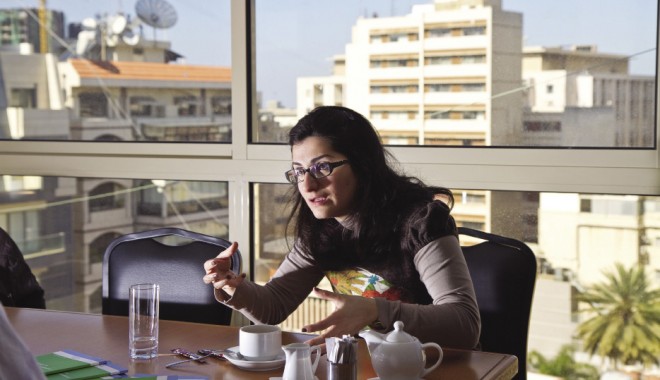
Can’t Give Up
Like Musleh, several other alumni place themselves somewhere between total defeat and blind optimism, discouraged by what they see but unwilling to give up.
“Nothing’s happening. We’re full gas on neutral,” says Maysa Baransi (SPI ’09), the co-director of All For Peace, the first joint Israeli-Palestinian radio station, though she still holds onto abstract hope for the future. “As a Palestinian, I can’t give up. Eventually we will get there. I just hope it will be in my years.”
Sonia Nakad (SPI ’09) says a curious paradox exists regarding public perception of “peacebuilding” in Lebanon, where she coordinates the Peacebuilding Academy with the Permanent Peace Movement.
Many people, especially ones from older generations, write off the entire field as misguided idealism, a nice concept, perhaps, but not something with power to effect change.
“Few people believe that this is the way to make things better,” Nakad says.
At the same time, everyone is sick of constantly fighting, and there exists widespread agreement that violent conflict resolution benefits no one. One project of the Peacebuilding Academy, aimed in part at encouraging broader society to invest in alternatives to violence, is the publication of peacebuilding manuals for Middle Eastern audiences, written by Middle Eastern experts. Democracy looks different in different places, she continues. So should peacebuilding.
“You cannot just move in a technique from outside,” Nakad says. “You have to take into consideration beliefs, culture and history.”
What applies in one place does not necessarily apply elsewhere. And what applies in one situation does not necessarily apply in another, says Fadi el-Hajjar, MA ’06. A long-time peacebuilding practitioner in Lebanon now managing a “strengthening civil peace in Lebanon” project for the United Nations Development Programme, el-Hajjar has begun to think more and more on the importance of wisdom.
After more than 15 years in the field, he has discovered that “the more you know, the more you know you need to know.”
In Search of Wisdom
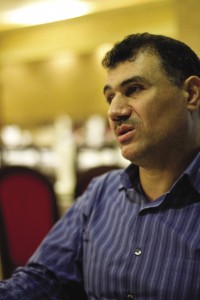
From this position of humility, el-Hajjar looks to the past for guidance for the future. Peacebuilders in the region, he says, should learn from mistakes, adapt, replace absolutes with nuance.
“If we balance things in terms of ‘right’ and ‘wrong,’ there’s going to be simplified decision making,” el-Hajjar says. “But if you take into consideration the complexities, the long-term and other variables, you need some wisdom. Even if you are ‘right,’ I think sometimes we need wisdom.”
For example: when a war is happening, the people caught in the middle don’t care so much about who is right and who is wrong. They want the shooting to stop. Later, everyone can talk about who bears responsibility for what and why. Wisdom is pragmatism, el-Hajjar says; wisdom avoids absolutes. He hesitates when asked about using violence to stop greater violence. It is a very difficult question.
“When you think in terms of black and white, you think in terms of limitations,” el-Hajjar eventually responds. “When you think of these as the edges of the spectrum, then we have wide room to maneuver.”
Lessons From the Empty Tomb
Make no mistake, says Zougbi Zougbi (SPI ’98 & ’02; STAR ’03), these are incredibly difficult times, in Palestine, where he lives, and in the wider Middle East. All around him, he sees demoralization, degradation, social breakdown, injustices and spiritual poverty. Life in Palestine is life in a pressure cooker as a result of the illegal and unjustified occupation, he says.
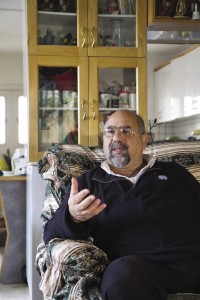
“Now, we are at our worst time,” he says. “Though you are tempted to be very angry in this situation, we don’t want to think of alternatives to nonviolence. We as Palestinians would like to deprive the Israeli government of an enemy.”
At the Wi’am Center, a mediation and conflict resolution organization Zougbi founded and directs, he sees the symptoms every day. Husbands fight with their wives. Landlords quarrel with their tenants. Brothers dispute a few square meters of inherited family land, while thousands of dunams are confiscated to build housing for Israeli settlers. You can’t blame everything on the occupation, Zougbi says, but it is pervasive. It is everywhere, and it is inescapable.
With a staff of 10, plus around 100 volunteers and interns from across the world, Wi’am offers programs in mediation, diplomacy and trauma-coping (“healing” can only begin after traumatic experiences end) to numerous different groups throughout Palestine. Its primary goals include confronting injustice, promoting dignity for and dialogue between all people, and spreading values of peace, justice, democracy and human rights. The organization was recognized in 2010 with World Vision’s Peace Prize.
Despite the difficult and worsening conditions facing his work and his people, Zougbi looks to the future with a profound but cautious hope drawn from multiple sources. He finds hope in his faith, in which he sees transformative power. He says the stations of the cross parallel the Palestinian experience – terrible, cruel, oppressive – and yet, leading inevitably, some day, to the empty tomb that represents salvation and victory.
This Too Shall Pass
He also finds hope in his adult children, who turned down opportunities to live and work abroad, and came home to Bethlehem.
And he finds hope in history. The Berlin Wall fell down. Apartheid came to an end in South Africa. Everything crumbles and returns to dust some day; though it defies imagination from the current vantage point, he is sure the occupation of Palestine, too, shall pass.
“I believe that oppression will be defeated. Political, economic, social and spiritual oppression will be defeated. Hope is based on restorative justice that redresses injustices rather than avenging them. Hope is a form of nonviolent struggle. Hope keeps us sane and alive.” Zougbi says. — AKJ